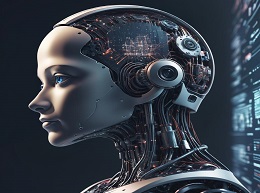The Future of AI: Predictions and Speculations

Artificial Intelligence (AI) has swiftly evolved from a concept of science fiction to an integral part of our daily lives. As we stand on the precipice of a new era, the question arises: What lies ahead for AI? Predictions and speculations abound, painting a picture of a future where AI reshapes industries, transforms societies, and challenges our perceptions of what it means to be human.
The Rise of Artificial General Intelligence (AGI)
One of the most hotly debated topics in the realm of AI is the emergence of Artificial General Intelligence (AGI) – a form of AI that possesses human-like cognitive abilities and can understand, learn, and apply knowledge across a wide range of tasks. While current AI systems excel at narrow tasks, achieving AGI remains an elusive goal.
Example: OpenAI's GPT-3
OpenAI's GPT-3 is one of the largest language models to date, capable of generating human-like text based on prompts. While impressive, GPT-3 is still far from exhibiting true AGI, as it lacks understanding and reasoning capabilities beyond language generation.
Ethical and Societal Implications
With the advancement of AI comes a myriad of ethical and societal considerations. As AI systems become increasingly integrated into various aspects of our lives, questions surrounding privacy, bias, job displacement, and autonomous decision-making loom large.
Example: Autonomous Vehicles
The development of autonomous vehicles raises ethical dilemmas regarding decision-making in life-threatening situations. How should AI prioritize the safety of passengers versus pedestrians in a potential collision scenario?
Augmented Intelligence: Enhancing Human Capabilities
Contrary to the dystopian narratives often depicted in popular media, many experts believe that the future of AI lies in augmentation rather than replacement. Augmented Intelligence focuses on enhancing human capabilities through AI technologies, empowering individuals to achieve greater efficiency, creativity, and problem-solving abilities.
Example: AI-Assisted Creativity
AI-powered tools like Adobe's Photoshop and Illustrator already assist artists and designers in creating digital artwork. In the future, AI could further augment human creativity by generating design suggestions, offering real-time feedback, and streamlining the creative process.
Collaboration Between Humans and AI
As AI capabilities continue to advance, the notion of collaboration between humans and AI becomes increasingly important. Rather than viewing AI as a standalone entity, envisioning it as a collaborative partner capable of complementing human strengths and compensating for weaknesses opens up new avenues for innovation and productivity.
Example: Medical Diagnosis
In the field of healthcare, AI algorithms can analyze medical imaging scans with a level of precision and speed beyond human capabilities. By collaborating with AI systems, healthcare professionals can expedite diagnosis, improve treatment planning, and enhance patient outcomes.
Unforeseen Developments and Paradigm Shifts
While we can make educated guesses about the future of AI based on current trends and technological advancements, it is essential to acknowledge the potential for unforeseen developments and paradigm shifts. The history of technological innovation is replete with examples of breakthroughs that defied conventional wisdom and reshaped entire industries overnight.
Example: Quantum AI
The intersection of Quantum Computing and AI introduces a new frontier of possibilities, where quantum algorithms could exponentially accelerate AI tasks, leading to transformative advancements in fields like drug discovery, materials science, and optimization.
Conclusion: Embracing the Uncertainty
As we peer into the crystal ball of AI's future, it is essential to approach predictions and speculations with a healthy dose of skepticism and humility. While AI holds immense promise in reshaping our world for the better, it also presents complex challenges and uncertainties that require thoughtful consideration and ethical stewardship.
The future of AI is not predetermined; it is shaped by the choices we make today and the actions we take tomorrow. By fostering interdisciplinary collaboration, promoting transparency and accountability, and prioritizing the ethical development and deployment of AI technologies, we can steer towards a future where AI serves as a catalyst for human progress and flourishing.
In conclusion, the future of AI is a tapestry woven from the threads of innovation, ethics, and human ingenuity. By navigating the uncertainties with curiosity, foresight, and a commitment to collective well-being, we can unlock the full potential of AI as a force for good in the world.